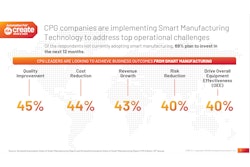Last week the Institute of Medicine (IOM) issued its obesity-prevention report at the Weight of the Nation™ conference hosted by the Centers for Disease Control (CDC). This report included a call to action for increased access to healthy foods (like fruits and vegetables) at retail outlets nationwide. Findings from a new Michigan State University (MSU) study released today underscored the critical role that canned fruits and vegetables play in helping Americans increase these intakes, regardless of geography or income level.
The MSU study, “Nutrition and Cost Comparisons of Select Canned, Frozen and Fresh Fruits and Vegetables,” analyzed more than 40 scientific journal studies and nutrition data, comparing canned fruits and vegetables to fresh and frozen based on nutrition and cost. The results created a reminder of the many good reasons why it’s time to revisit what’s on the S.H.E.L.F. Canned foods are not only tasty, they are:
• S – Safe: According to the CDC, at least 128,000 Americans are hospitalized each year with foodborne illnesses. The MSU analysis concluded canned foods are a safer option for produce thanks in part to the canning process that creates a barrier to microbiological contamination.
• H – Healthy: The study underscored that nutritionally, canned foods are on par with and in some cases better than fresh and frozen. In fact, canning tomatoes improves the B vitamins, vitamin E and carotenoid content. Fiber, a nutrient of concern in the 2010 Dietary Guidelines for Americans, becomes more soluble and therefore more useful in the human body, in the canning process.
• E – Ease of preparation: Canned fruits and vegetables are convenient to prepare and incorporate into meals or on their own. They are not subject to seasonality or refrigeration requirements, also making them easily accessible to all – from corner convenience stores to supermarkets, a key recommendation in the IOM report.
• L – Thanks to their long shelf life, canned foods are perfect staples to stock up and have on hand anytime. USDA reports Americans waste 25 percent of their fresh produce each year, and with 23.5 million people living in areas known as “food deserts” with little or no accessibility to nutritious foods, canned fruits and vegetables provide a smart shelf-stable option for families.
• F – Financial benefits: Canned foods stretch hard-earned dollars, saving up to half the cost of frozen and 20 percent of the cost of fresh. For example, fresh green beans are estimated at 500 percent more costly than canned.
“Canned foods can be a terrific option to easily and inexpensively incorporate great tasting nutrition into healthy meals,” said Patricia Bannan, MS, RD, author of Eat Right When Time is Tight. “One of the IOM report directives is to increase access to healthy foods at various locales. It’s important that people do not overlook the variety at convenience stores across the country with healthy options sitting on the S.H.E.L.F.”
The release of the MSU study follows FDA announcement that BPA, a lining used to protect canned foods from contamination, is safe within current guidelines.
Additional study highlights can be found at www.cancentral.com/MSUStudy.
MSU study: The role of canned foods in a healthful diet
A new study from Michigan State University released today underscores the important role canned foods can play in addressing the nation’s obesity problem.
May 16, 2012
Machinery Basics
Annual Outlook Report: Sustainability
The road ahead for CPGs in 2025 and beyond—Packaging World editors review key findings from a survey of 88 brand owners, CPG, and FMCG readers.
Download Now
Annual Outlook Report: Workforce
Hiring remains a major challenge in packaging, with 78% struggling to fill unskilled roles and 84% lacking experienced workers. As automation grows, companies must rethink hiring and training. Download the full report for key insights.
Download Now
Downloads























